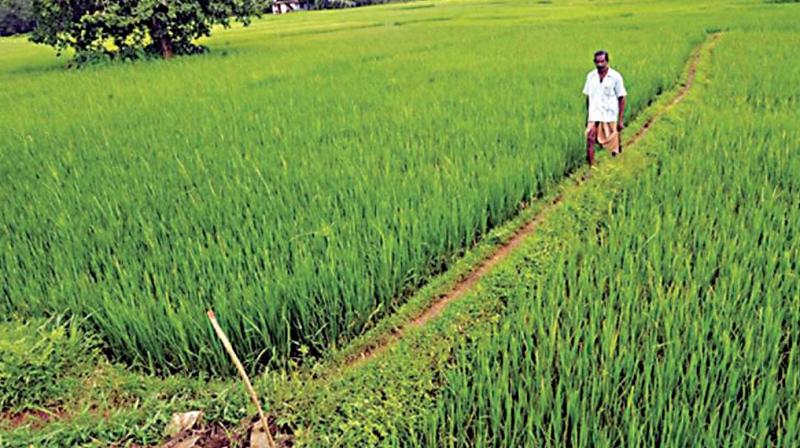Budget 2019: Changing the game for rural India

Finance Minister Nirmala Sitharaman presented a holistic and aspirational Budget that laid emphasis on boosting the Indian economy to a size of $5 trillion over the next five years. It rightly focused on building infrastructure, strengthening the rural economy and fuelling the startup ecosystem.
It was heartening to see that the government has a clear plan to bridge the urban-rural divide to ensure long-term sustainable growth of the economy. It seeks to provide self empowerment opportunities to disadvantaged farmers so they can participate in growth and partake in its dividends, lifting them out of poverty. In fact, the Finance Minister said her government has kept "gaon, gareeb and kisan" (villages, poor and farmer) at the centre of every programme.
Rural India is home to over 65 per cent of India's population, but economic policies in the recent past have excluded a majority of rural society from partaking in India's development journey. To address the deprivation and dissatisfaction among a large percentage of people in the Indian villages, it had become imperative to boost the agrarian economy to pull the maximum number of people out of subsistence farming and give them a much more remunerative role.
Policies that have typically focused on short-term solutions such as welfare funding have failed to address the root cause of poverty. Providing 100 days of guaranteed wage employment each fiscal year through unskilled manual work does not ensure sustainable livelihood for the remaining 265 days of the year or help upskill rural workers. In this day and age, using labour to dig wells or lay roads is really not a very smart way of using human capital. Unless human capital is empowered with knowledge and skills, we will waste a huge resource.
This year's Budget has sought to change the status quo by pushing sustainable job creation. It talked about setting up livelihood business incubators and technology business incubators to develop 75,000 agri-entrepreneurs.
To re-energise the rural economy, the Budget also proposed the setting up of 10,000 new FPOs. Creation of FPOs can give the Indian farmers a competitive edge because they can pool in their produce, invest in cold storage facilities and better negotiate with large buyers. Moreover, empowered with technology and data science, farmers can build more efficient supply chains that connect retail grocery stores with food processors and FPOs.
In fact, these FPOs can tie up with business schools to build the knowhow for developing a robust entrepreneurial ecosystem that leads to the creation of a vibrant rural economy. If we can create villages that can directly sell produce to global markets then we will see the ripple effects of a micro-entrepreneurial economy flowing through rural India.
Creating micro-entrepreneurs and economic clusters in rural India will provide a fillip to the employment ecosystem and ensure self-sustaining jobs, helping farmers to emerge from an existence of perpetual disadvantage.
To ensure inclusive economic growth, the government needed to focus urgently on transforming the rural economy by providing robust physical and social infrastructure.
The Finance Minister did well to set a target of taking electricity and clean cooking facilities to every single rural family by 2022. To boost rural infrastructure, the Budget not only announced a substantial outlay for upgrading rural roads but also talked about speeding up internet connectivity to every panchayat in the country. She also promised to ensure that every rural house will get access to clean drinking water by 2024 under the Jal Jeevan Mission. These measures will give a big push to ensure 'ease of life' in rural India and follow up on the good work done through connecting 99 per cent of households under the Saubhagya scheme and giving out 7 crore LPG cylinders under the Ujjwala scheme.
I also commend Ms Sitharaman for focusing on women's empowerment. In a boost to women self-help groups (SHGs), she announced the expansion of the interest subvention programme to all districts and an overdraft facility of Rs 5,000 for every woman SHG member having a verified Jan Dhan account.
The Budget also announced support for fish and aquatic products and reiterated announced a proposal of zero budget farming to achieve the goal of doubling farm income in the coming years.
Overall, the policies formulated in Union Budget 2019-20, for the rural sector and agrarian economy, will help people emerge from an existence of perpetual disadvantage to that of self-sufficiency and will eventually lead to a long-term sustainable growth of the economy.
— The writer is CMD, Biocon.

